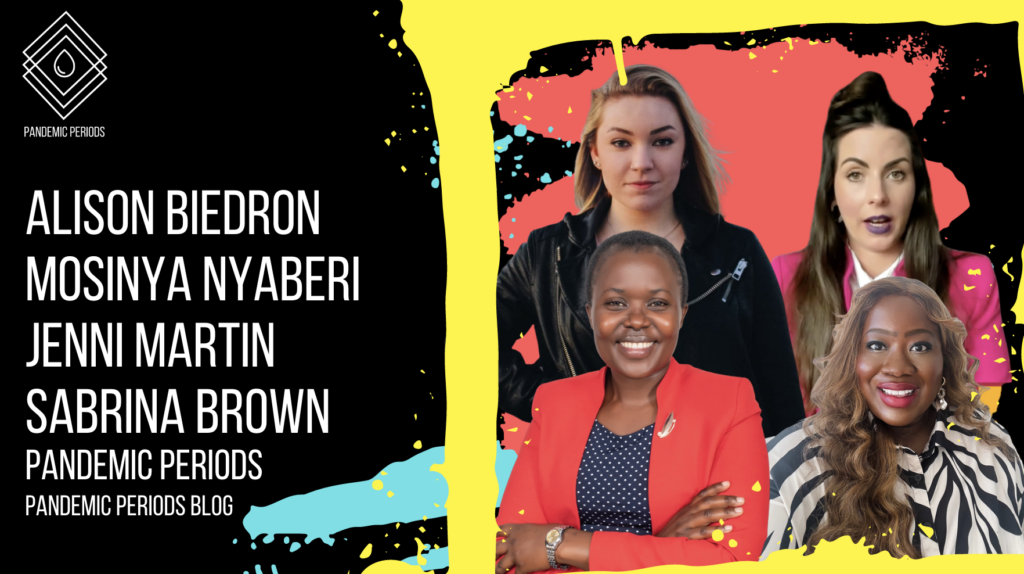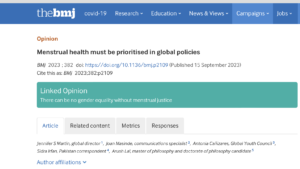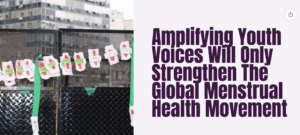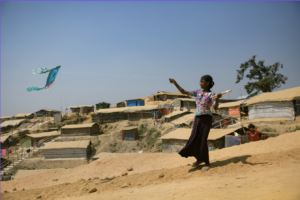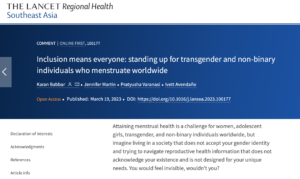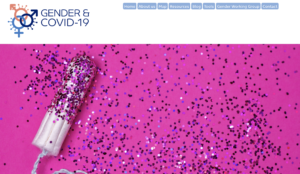Menstrual Hygiene Day (MH Day) is an opportunity to drive collective action to advance the funding, policy, programmes, and practices that enable menstrual health. It has been an internationally recognised event since 2014 with a long-term plan for reducing the impact of menstrual health and hygiene stigma and advocating for the advancement of “educational opportunities, health and overall social status” of women, adolescent girls, transgender men, and non-binary people who menstruate across the globe. MH Day has fostered international collaboration for these efforts by partnering with over 900 social impact organisations that join each year to promote the inclusion of menstrual health on the global health agenda. Pandemic Periods is proud to be part of these efforts. This year, the theme is #WeAreCommitted, emphasising the need to strive for “a world where no one is held back because they menstruate by 2030.”
MH Day annually falls within the World Health Assembly. Despite MH Day reaching over 687,000,000 people since the organisation’s inception, menstrual health remains absent from the World Health Assembly discussions this year. The first World Health Assembly met in 1948 and established the following topics as areas for concentration: “malaria, tuberculosis, venereal diseases, maternal and child health, sanitary engineering, and nutrition”. Although 75 years ago, sexual, and reproductive health was of the utmost concern to the world’s leading health officials, to this day, menstrual remains markedly unprioritised on the global stage. Menstrual health is the gateway to broader reproductive health and reproductive health rights because it offers the opportunity for reproductive health literacy, vocabulary, self-efficacy, and body autonomy.
One of the first agenda items of this year’s talks is the Global Strategy for Women’s, Children’s and Adolescents’ Health (2016-2030). The briefing mentions many significant health areas, including sexual and reproductive health, vaccine uptake, mental health concerns, conflict and violence, migration, and nutrition. However, menstruation is notably still missing from this otherwise reasonably comprehensive list.
The impacts of this omission at the WHA76 are far-reaching. Menstrual health stigmas, taboos, and shame affect millions of people’s ability to live freely and cause adverse health effects for some of the world’s most vulnerable groups. Discussing menstruation on a global stage can help to lay the groundwork for broader conversations around sexual and reproductive health in the community, workplace, education, and families, and at the individual level, can help to create a common vernacular and language for younger populations to discuss these issues openly, without shame. Failing to include menstruation in global health discussions is a missed opportunity to raise further awareness of the wide-ranging impacts of menstruation on other essential health discussions.
Other essentials include the social determinants of health, health emergencies, and the prevention of sexual exploitation, abuse and harassment. These topics could and should include discussions of how menstruation will play a role for at-risk populations. For example, when children learn how menstruation can affect their peers, it leads to a further understanding of social and economic disparities. Lack of support for menstruation policies inhibits gender parity and continues discouraging the normalisation of menstruation in international policy and discourse.
Access to safe, affordable and hygienic menstrual products, clean water, and comprehensive sexuality education is vital to alleviating the burden on vulnerable women, adolescent girls, and people who menstruate. Without these essential resources, women, adolescent girls, and people who menstruate can face barriers to accessing schools, workplaces, and other public spaces. Learning about menstruation can help to contextualise these inequalities, and global health leaders should be discussing these issues so that UN Member States can follow suit.
The timing of MH Day within the annual World Health Assembly should be capitalised on to promote and raise awareness for not only menstrual health inequalities but all sexual and reproductive health disparities. Pandemic Periods calls on the World Health Organization to include menstrual health in future WHAs. Menstrual health is an important topic and should be recognised.

